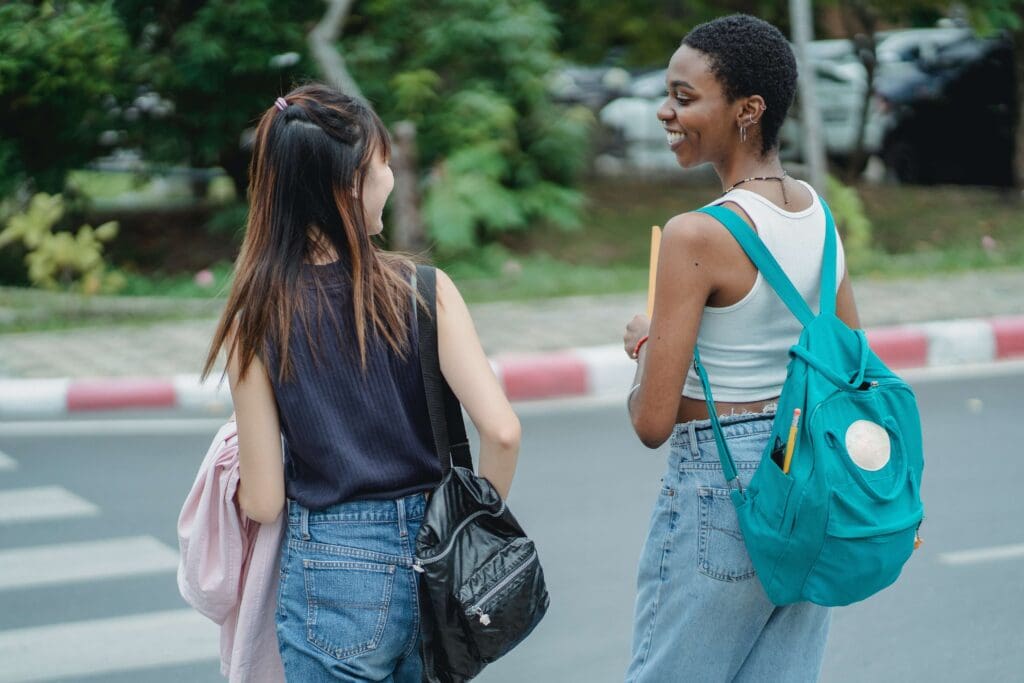
During Womxn’s History Month, we hold space and celebrate the often-overlooked stories and contributions of women in society. Women have long been the pioneers of some of the most historical movements in the United States.
On International Women’s Day, our minds immediately go to some of the greats, influential women such as Sojourner Truth, Rosa Parks, Sally Ride, Angela Davis, Malala Yousafzai, and Maya Angelou (just to name a few).
Today (and frankly every day), we want to pay homage to all of those trailblazing women before us and amplify some of the women leading in our space of mobility justice, and active transportation.
Paulina Baeza, she/her
Principal City Planner, Tulsa Planning Office & Adjunct Professor, University of Oklahoma Urban Design Studio
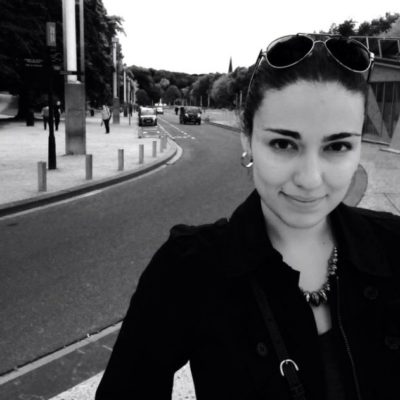
My name is Paulina Baeza, and I am an Architect from Mexico with a background in Planning and Urban Design. I currently work as the Principal Planner for Planning and Design at the City of Tulsa, and I am also an Adjunct Professor at the University of Oklahoma Urban Design Studio. As a Board Member for America Walks, I have had the unique opportunity to advocate at a national level for what I do and teach locally. I also have met and collaborated with leaders that are working on these topics throughout the country.
As a Hispanic woman, I believe cities should be planned and designed to include diversity. The use of an equity lens is indispensable to ensure that everyone is served, and as a planner, I can help foster more inclusive communities by encouraging transportation, uses, and initiatives that address the needs of every group.
Over the years, women’s role in society has shifted towards a more active participation in the labor force and the economy. Therefore, planners should focus on building cities that adapt to this shift and facilitate mobility between places to secure a harmonious work-family interaction. Examples of initiatives that could support women’s needs include increasing diverse (and affordable) housing options; encouraging proximity between need-based destinations such as employment, healthcare, schools, childcare, and grocery stores through zoning; promoting multimodal transportation options, ADA accessible infrastructure, and language accessibility; and developing policies that support job creation for women and flex-work environments.
In addition, getting women involved in all stages of the planning process is crucial, and we should also empower them to join the sector and increase their representation. I am fortunate to have received many opportunities and I enjoy what I do, which is why I will continue to advocate for more livable and inclusive cities, and mentor future generations along the way.
About Paulina:
Paulina is an Architect from Puebla, Mexico, with a master’s degree in Urban Management, Land Valuation, and Planning from Barcelona, Spain, where she conducted research at the Polytechnic University of Catalonia. She recently completed her second master’s at the University of Oklahoma Urban Design Studio and has participated in workshops, conferences, and the development of projects in Spain, Germany, Mexico, and the United States. She has also been involved in Academia since 2010 and was both an ALBAN and CONACYT scholar.
Paulina lives in the United States and is currently the Principal City Planner for the Tulsa Planning Office at INCOG, Tulsa’s Metropolitan Planning Organization, where she oversees Strategic Planning. She also works in the development of policy and design proposals, public participation strategies, placemaking, sustainable projects, resilience, and planning for inclusive communities.
Paulina teaches courses on Urban and Regional Transportation Planning, Sociology of Housing and Architecture for Non-Majors at The University of Oklahoma, and lectures long-distance at the Instituto Tecnologico de Monterrey in Mexico. She began serving at the Hispanic Affairs Commission of the City of Tulsa, Oklahoma, in January 2018 and serves as a Board Member and Chair of the Programming Committee of national American nonprofit, America Walks. She also serves as a board member for the Tulsa Regional STEM alliance. Find her on LinkedIn.
Kea Wilson, she/her
Senior Editor for Streetsblog USA
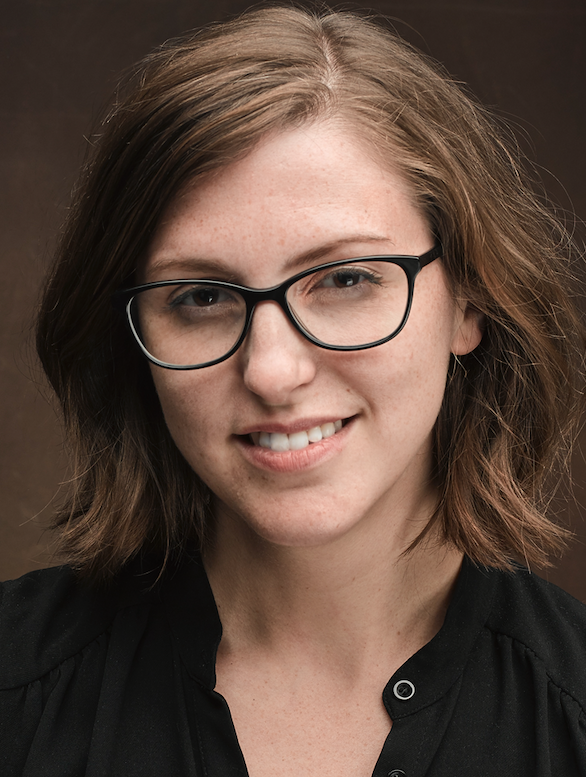
I became an advocacy journalist, in large part, because I’m passionate about ending the negative impacts of car dependency on marginalized groups, including the gender-marginalized and the multiply marginalized. It is not possible to achieve goals like Vision Zero until we interrogate and reckon with the distinct barriers we face to true freedom of mobility, and until we center women, nonbinary people, and other underserved communities in shaping our own lived reality on our roads, rails, and beyond. It is always my goal to tell stories that expose the unjust structures that underlie our transportation system and to uplift the movement to dismantle them.
About Kea:
Kea Wilson is an advocacy journalist and speaker dedicated to telling emotional, urgent, and actionable stories that motivate average Americans to get involved in making their cities better places. She is also a novelist, cyclist, and affordable housing advocate. She lives in St. Louis, MO. Find her on Twitter.
Sydney Sepúlveda, she/her
Program Manager
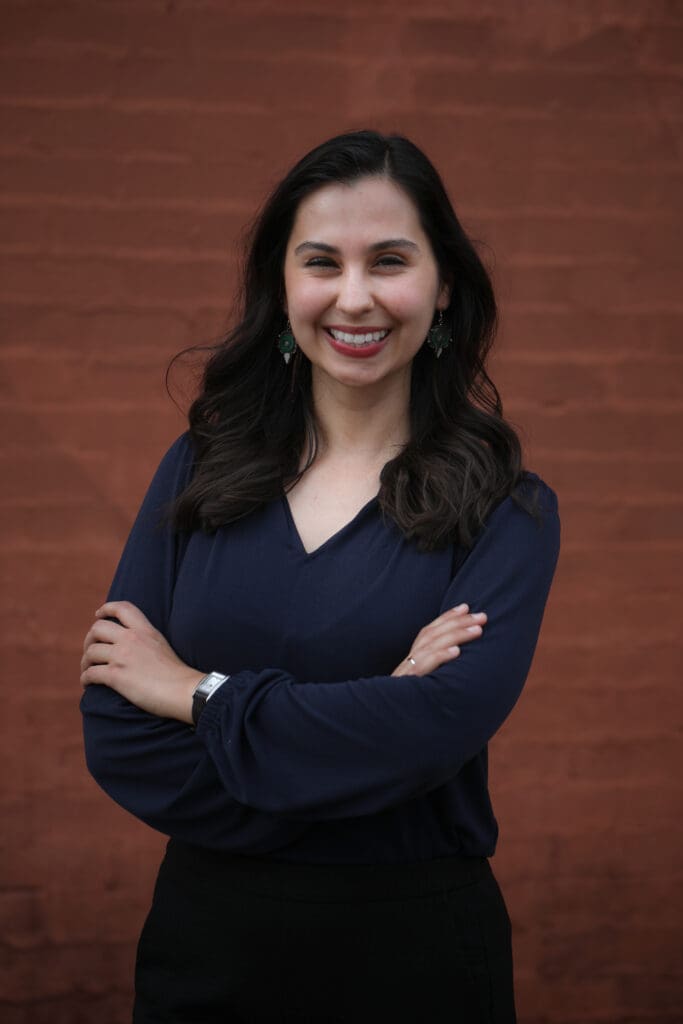
As a young biracial woman working in the world of transportation planning, things aren’t always easy. Each challenge to push forward projects that center walkability and streets designed for people encourages me to grow and strengthen my passion for my work. I’m so thankful and privileged to have many women around me who are working as advocates for people-centered planning. We are each other’s support and inspiration and lean on each other to move forward.
My passion gravitates toward pedestrian safety and walkability, and my advocacy approach is heavily influenced by my experience walking as a woman. As women, we are often highly attune to our environment – leaning on our intuition to take us the safest route, which is often the most vibrant, the most accessible, the most well-lit, and the most comfortable. We push strollers, carry heavy bags, multi-task, chat with friends, and do so much more all while walking. A street that’s planned around a woman’s experience and needs is a street that will most likely be enjoyed and appreciated by all users.
My interactions with my city’s streets also inspired me to create a social media page centered around women on bicycles – @girlswhobicycle. My hope is to encourage and inspire more women to bike and integrate bicycling into their everyday lives. No need for expensive cycling gear or attire – we can wear whatever we want! This journey has connected me with women across the globe with similar missions and has served as my own source of motivation to continue bicycling to work, home, the park, and beyond.
About Sydney:
Sydney Sepúlveda manages the Memphis Medical District Collaborative’s (MMDC) Quality Public Realm program. Prior to her time at MMDC, she received her master’s in Community and Regional Planning from the University of Texas at Austin. Sydney is driven by a love for cities and a desire to help cultivate vibrant, safe, welcoming, and equitable places for the people that inhabit them. A strong and passionate advocate for pedestrians and bike riders, Sydney started an Instagram platform, @girlswhobicycle, to encourage and support other women bicyclists like herself.
Wendy Landman
Former Executive Director of WalkBoston
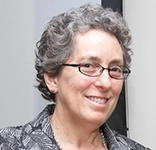
In 2019 America Walks posed an opportunity for our audience, internal staff, and supporters to nominate women walking champions who they admire. This piece was written by Stacey Beuttell, then the Executive Director of WalkBoston, in recognition of Wendy’s powerful, 15-year tenure as Executive Director there.
In February 2023 Wendy retired from WalkBoston – happily, she remains on the America Walks Board – but Stacey’s 2019 piece remains relevant to understanding Wendy’s role in the walking movement. It also provides a great overview of the point of view she brings to her advocacy which is grounded in her lived experience as a woman and a mother.
In honor of Women’s History Month, we are happy to reprise (and update) some of Stacey’s article.
Wendy assumed the role of WalkBoston Executive Director in 2004. During her tenure, Wendy transformed WalkBoston into a fully staffed, professionally-run statewide organization recognized nationally for its pedestrian advocacy efforts and technical expertise. She led WalkBoston’s efforts to focus on the needs of Massachusetts’ most vulnerable populations including communities of color and low-income residents, transit-dependent people, children and older adults.
Wendy is particularly passionate about the connection between walking and transit, and can often be heard stating that “transit is the middle leg of a walking trip.” Massachusetts state agencies have heard her calls for improving the “last mile” of a commute – from “a crosswalk at every bus stop,” to sidewalk improvements and lighting to and from transit facilities – and have embedded those strategies in statewide planning and capital improvement efforts. Thanks to Wendy’s and WalkBoston’s continued advocacy, MassDOT (and a number of Massachusetts municipalities) are now piloting better ways to undertake sidewalk snow removal – a major win for all of us but particularly those with limited mobility.
Women tend to be the primary caregivers of young children and older adults, and as such experience difficulties related to a challenging transportation system and unsafe walking environment more often than men. As a woman, Wendy can empathize with these struggles and often names them when testifying about being dependent on unreliable transit systems to pick up children before daycare closes or take someone to a medical appointment. Wendy, like her mentors before her, has worked to diversify the transportation industry and bring the voices of those not often heard from to the table.
The most important thing I have learned from Wendy is the importance of relationship building. Her approach to advocacy focuses on coalition building and measured discussion which has allowed her to push on issues from the inside and the outside. Strategic alliances between advocacy groups, state agencies, policy makers and community-based groups have led to some of her biggest wins for walking.
Wendy is a true believer in the idea that the quality of the built environment has a direct effect on a person’s quality of life. She built longstanding relationships with the Massachusetts Department of Public Health and advanced the idea of the importance of walkable communities in Age-Friendly efforts happening across Massachusetts. You will often find Wendy poring over the latest research on walking and health, walking and economic development, or walking and climate resiliency. She believes in a data-driven evidence-based approach and uses her knowledge to align like-minded groups toward a common goal of more equitable, healthy communities.
Update:
When Wendy stepped down as Executive Director of WalkBoston in 2019 she did not retire but continued as a part-time Senior Policy Advisor, a role that she held until February 2023. She helped WalkBoston navigate the COVID pandemic and successfully urge Massachusetts to support and make permanent the walking improvements that allowed communities to create outdoor spaces that served the needs of socially distanced walking, dining, and community activities.
Addie Walker, she/her
Advocacy Program Manager at Black + Motal Architecture and Urban Design
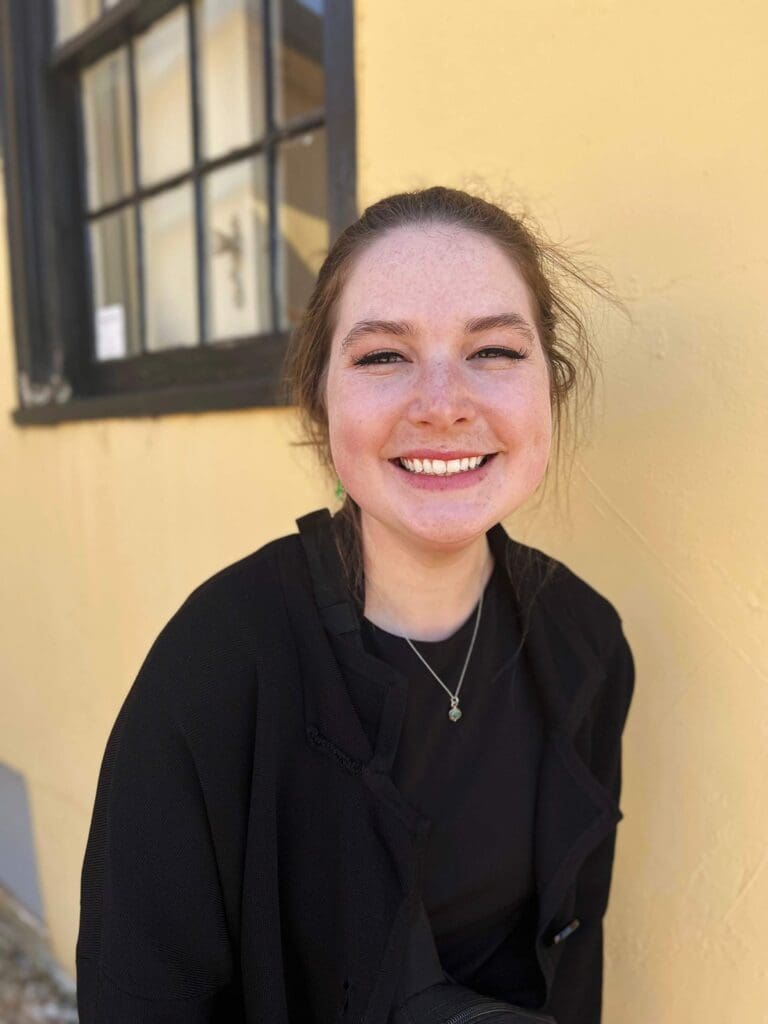
I grew up in a family of architects and urban designers, and from a young age heard stories about walkable cities, about design, and about planning. When we traveled, we would talk about city design, and how much easier it was to take transit abroad than at home in Texas. I think that in childhood I was overexposed to intelligent people speaking about transportation and urban planning – when I went to college, I told myself I would study something completely different, and went into public health. But I came to learn that design and transportation are intertwined with public health and with the environment and that healthy cities are ones that support walkability, mixed-use, and sustainable practices. I started working in transportation and design advocacy as a way to support healthy cities and tackle the climate crisis.
In my current role, I support nonprofits in Austin and Central Texas that are working to make our region more walkable, transit-friendly, less car dependent, and more equitable and sustainable. Advocacy work can be challenging and emotionally demanding, but I am continually inspired by the others working in this field, and the support that is offered to us on a national level, including from America Walks. I see a paradigm shift in the works with regard to how we understand and operate cities. USDOT is speaking plainly and openly about institutional racism in planning and how freeways are monuments to segregation – a huge change from federal messaging even five years ago. Those changes bring me hope, and help me remember why this work matters. It takes thousands of hours of advocacy to move the needle the tiniest bit – but the needle does eventually move, and the world is better off for it.
About Addie:
Addie Walker works as the Advocacy Program Manager at Black + Motal Architecture and Urban Design based in Austin, Texas. She is a 3rd generation Austinite and is grateful to work every day to make her hometown more walkable, equitable, and sustainable. In her professional role, Addie provides support for local nonprofits in Austin and Central Texas, including the freeway fighting organization Reconnect Austin. She is a fellow of the 2022 Texas State Walking College. Find her on Twitter and LinkedIn.
Courtney Thomas, she/her
Senior Policy Analyst

I first became involved in community development advocacy when I moved to Memphis TN for a research and teaching fellowship on urban poverty. Through a contract with the TN Department of Human Services, I served as a trainer at a workforce development agency, teaching jobs skills to individuals receiving public assistance, while studying the systems that contributed to poverty. Through the interactions with my clients and my own experience, living and navigating a new city,I quickly realized how where you grow up and where you live can negatively or positively impact your quality of life. Many neighborhoods lack access to healthy food, financial institutions, transportation, walkable streets, affordable housing, and so many other basic necessities, all of which contribute to and trap people in cycles of poverty. I began to see social science research as a tool not only to analyze but to advocate and mobilize communities for social justice. I became involved in local projects and organizations where I could not only learn from the communities I served but also offer resources and support.
I currently serve as a Senior Policy Analyst at Hope Policy Institute, where I coordinate and lead public policy efforts to improve the economic well-being of working families in the Deep South by using research, outreach, and education. My compassion and empathy for others and their stories fuel my advocacy. While data-driven and evidence-focused research are necessary to build solid cases for proposed policies and legal protections; social change cannot occur in an academic vacuum. It must be led by the people and center the voices of those who are most affected. I strive to advance fair and equitable public policies that center the voices and experiences of black and brown communities and other historically marginalized groups.
About Courtney:
Courtney is a Senior Policy Analyst at HOPE Policy Institute. In her position, she coordinates and leads public policy efforts to advance economic opportunities for working families in the Deep South by using research, outreach, education, and advocacy. Her primary areas of research include consumer protection, financial inclusion, and community and economic development.
Prior to joining HOPE, Courtney worked in policy and advocacy at a community development organization in Memphis, TN, and completed a national research fellowship on urban poverty. She is a member of the Memphis Urban League Young Professionals, a graduate of Leadership Memphis, and a 2021 America Walks Walking College Fellow.
Courtney has a bachelors in Political Science and a Masters in Public Administration from Clark University in Worcester, Massachusetts. Find her on LinkedIn.
Michia Casebier
President, M.G. Tech-Writing, LLC
For years, I’ve introduced myself as a Multimodal Transportation Planner, because the Safe Routes to School Program stole me from my Grant Administration job. Before that, I was willingly sucked into grant writing from my job teaching children on the White Mountain Apache Indian Reservation. But, I was called to transportation advocacy, because it’s interesting, challenging, and melds the skills I developed in my previous vocations. I love learning, writing (and teaching tribal and rural communities) about concepts like visual friction, pedestrian safety islands, furniture zones, and road diets, and conveying how knowledge and application of, those concepts to road design can slow speeds and save lives – particularly in long-neglected communities of color. One of the many challenges in this work is to inspire others to see its importance and support ongoing efforts to improve the built environment. Thus, when roadway fixes are funded/installed, community members and local planners remain driven to do long-range planning to increase safety across their entire road network.
Although I never imagined a life doing this work, I was providing a SRTS training one morning in 2010, when I paused briefly after telling the room how pruning parties draw neighbors together as advocacy teams and simultaneously clear sidewalk areas for safer pedestrian access. For the first time, I realized that I was teaching the very information that might have saved my grandmother’s life in 1974 when she was hit from behind by a pickup truck. If our neighbors had pruned the hedgerow, which overgrew the narrow sidewalk that existed on only one side of our street, she wouldn’t have been walking in the road. SRTS training also teaches pedestrians to walk facing traffic, a safety concept about which we weren’t yet aware in 1974. My pause in the DOT conference room that morning was my sudden recognition that without having ever consciously sought to do so, I was now in a position to teach people safety approaches that could spare the lives of their loved ones.
My grandmother was an ever-present force in my life because my father was a single parent at a time when it was rare to see a father raising a daughter alone. One of the strongest and most independent women I’ve ever known, she taught me to bicycle and to make my own opportunities. I am a League Cycling Instructor now, who loves that thrill of feeling a child achieve balance on their bike, then letting go of the bike, so they can pedal forth on their own.
My grandmother demonstrated perseverance in a world not yet prepared to accept her as a person of color in her field, and certainly not as the administrator she became. Shirley Chisholm, the first Black woman elected to the U.S. Congress, and to campaign for the U.S. Presidency, once said, “If they don’t give you a seat at the table, bring a folding chair.”
The human body is rarely able to survive the impact of our ever-larger pickups or SUVs, and my grandmother succumbed to her injuries that day when a teenage driver lost control in the first snow of the season and hit her. Nonetheless, her drive and spirit live on in the work that I do. If I teach the skills; fund or help build the infrastructure; or fit a child with a helmet that can help save even one life or prevent one granddaughter from losing her Gram, then all the travel, late night, and weekend labor this work requires is worth it. And I invite others, who are interested, to learn how to do this rewarding work or to collaborate with us to make our roadways safer for more than just vehicles.
Molly O’Reilly
One of America Walks “Founding Mothers”
I was launched into transportation in 1989 by a scheme to build a western bypass freeway in Portland, OR. It would cut off the wildlife corridor to the coastal range from my beloved Forest Park. It yanked me out of my chair and kept me on my feet!
After the freeway’s defeat and moving to Sandpoint, ID, in 2001 I wanted to contribute to my new community. Transportation, I mused, was something I’d learned about. Nobody was advocating for walkability, so I decided to go there. I’m still there because for me walkability is a social justice, health, and environmental issue. When my local efforts were temporarily stymied, I joined the America Walks board and helped found and lead the Idaho Walk Bike Alliance. All three activist levels still stimulate and motivate me.
About Molly:
Armed with a degree in history, I worked as a market research analyst in the auto industry (while they were fighting Ralph Nader and seat belts), wrote advertising copy, gave industrial hearing tests, and was a Xerox sales rep and later a Xerox Service Manager, back when few women were. I became half owner of a wholesale nursery. Then Advertising Sales Director for Willamette Week Newspaper in Portland. Pioneer Courthouse Square in Portland hired me as their first Executive Director, where I served for 4 years.
Retiring early, my husband and I sailed across the Pacific to Australia, and back. We built and managed small, affordably-priced apartments in Sandpoint, ID, and enjoyed the outdoor life. Did growing up in a walkable neighborhood really shape me? Maybe so. I’ve now been an advocate for walkability for 22 years.